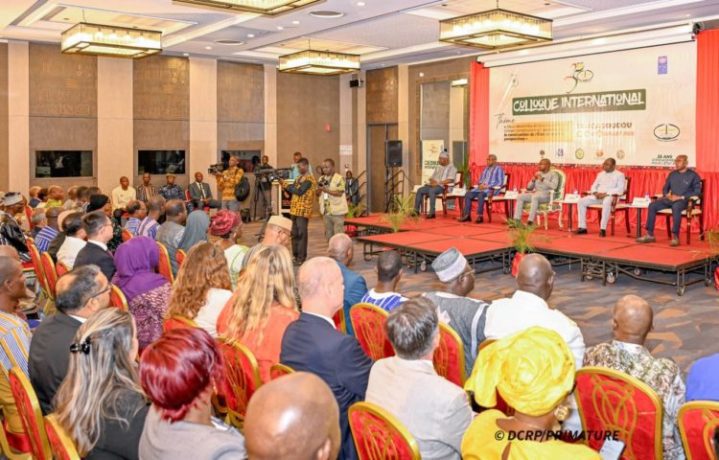
Burkina Faso’s Prime Minister Rimtalba Jean Emmanuel Ouédraogo has issued a bold call for constitutional reform that moves beyond elitist circles and embraces the will of the people, as the West African nation commemorates 25 years of its Constitutional Council.
Speaking at the opening of an international colloquium in Ouagadougou on Tuesday, the Prime Minister, representing President Ibrahim Traoré, urged a sweeping shift in how constitutional governance is shaped and implemented across Africa.
“There is a need to take the Constitution out of the circle of a few so-called enlightened people and bring it towards the popular masses,” Ouédraogo said.
“It is time to break away from the constitutional mimicry inherited from the colonial period.”
The event, themed “Two Decades of Constitutional Council Operations: Contributions to Building the Rule of Law and Perspectives,” drew prominent legal experts, government officials, and academics from across the continent.
It aimed to assess the Council’s role over the past 25 years and explore future avenues for constitutional justice amid evolving democratic challenges.
In his keynote address, Ouédraogo stressed the urgent need for African constitutional institutions to redefine their mandates in light of the continent’s quest for self-determined governance.
“This is a historic opportunity to fundamentally rethink the constitutional direction of our countries, in coherence with national sovereignty and indigenous values,” he said.
He commended recent reforms within Burkina Faso’s justice sector, describing them as a clear signal of the country’s commitment to a new constitutional vision.
“The guardian of our Constitution must undertake deep reflection to improve its mission, in a way that contributes to the protection of our people’s rights and to the consolidation of a democratic model aligned with the aspirations of the Burkinabè people,” he stated.
The Prime Minister’s remarks mark a decisive tone in the country’s ongoing transition, highlighting the government’s ambition to chart a new path of governance rooted in African identity and popular legitimacy.



